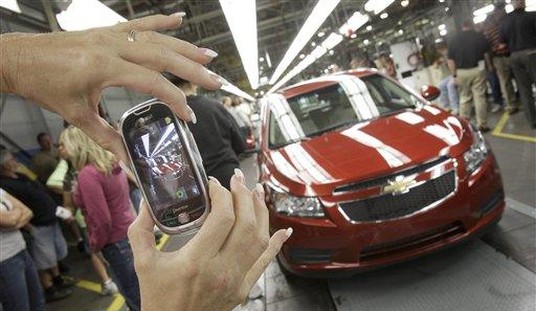Requiring voters to present a photo ID before they cast a ballot made perfect sense to former North Carolina Supreme Court Justice Bob Orr until he read Ron Chernow’s biography of President Ulysses S. Grant.
North Carolina Republicans are probably hoping state voters won’t get their hands on that book until after the first Tuesday in November.
Orr still doesn’t agree that voter ID requirements are a way to suppress black voters. But after reading Chernow’s book, which, he wrote in the Charlotte Observer, includes “the horror and violence that descended upon blacks in the South attempting to participate in the most basic of democratic institutions — the right to vote,” Orr said he changed his mind about the wisdom of 21st-century voter ID laws.
“Maybe a photo voter ID isn’t all that bad, but I’m willing to say today after reading Chernow’s ‘Grant’: Let’s put this proposal on the shelf as simply the right thing to do,” Orr wrote.
A federal appeals court did just that in 2016. The Fourth Circuit Court of Appeals rejected North Carolina’s voter ID law in an 83-page decision, which among other things said the legislation targeted “African-Americans with almost surgical precision.”
North Carolina Republicans aren’t giving up. GOP legislative leaders proposed a constitutional amendment the first week of June that would again require voters to present a photo ID before being allowed to cast a ballot. The proposed amendment will be offered to voters in November if both houses of the legislature agree by a supermajority.
However, the voter ID amendment was just the beginning. Republicans on Wednesday offered legislation that would scratch the final Saturday of early voting in North Carolina elections, a day popular with many of the state’s African-American voters. Also, GOP leaders told the New York Times they were working on a constitutional amendment that would reduce the power of Gov. Roy Cooper, a Democrat, on the state board that controls elections.
Here comes the backlash; a civil rights group, Color Of Change, warned Apple and Amazon to stay away from North Carolina unless the voter ID constitutional amendment is squashed.
“It is irresponsible and negligent for Apple and Amazon to even consider North Carolina as the site for their new headquarters if this law moves forward,” said Brandi Collins, a Color Of Change spokeswoman. “Tech corporations cannot pay lip service to inclusivity but turn a blind eye when communities of color are under attack. Apple and Amazon have a duty to ensure that black voters be given an equal voice in North Carolina’s democracy.”
North Carolina NAACP President T. Anthony Spearman said the General Assembly was conducting a “suppression session,” and vowed to join Color Of Change in opposing the voter ID amendment proposal.
“Legislating state-sponsored discrimination cannot continue without consequences,” Spearman told reporters.
The Greensboro News & Record’s official opinion is that voter ID is just as wrong an idea in 2018 as it was five years ago when the General Assembly approved the law the first time.
“It’s like a zombie idea that keeps lumbering along and refuses to die,” the News & Record opined. “It’s past time to let this zombie die.”
The bill states: Every person offering to vote in person shall present photo identification before voting in the manner prescribed by law.” A three-fifths majority vote in both legislative chambers is required before it can appear on the November ballot.
House Speaker Tim Moore called the voter ID amendment a “common-sense measure to protect the integrity of our elections system” when he introduced the proposal to place the idea on the November ballot.
Moore also said the measure would be supported by “the vast majority of North Carolinians who know protecting our democracy should be one of lawmakers’ highest priorities.”
State Rep. Michele Presnell (R) said House Bill 1092, the voter ID amendment, is not about racism; it’s all about blocking election fraud.
“Citizens are increasingly concerned about attempts to subvert our elections process,” Presnell said, “and it is incumbent upon government officials to safeguard public perception of our democracy as well as the actual ballots cast.”
Democrat state Rep. Garland Pierce doesn’t like the voter ID proposal, but he’s afraid it’s going to be approved no matter what the NAACP and Color Of Change threaten.
“We should resist the urge to make a whole lot out of it,” Pierce said. “It is going to pass, No. 1.”
“I think that the party in power is using this to get people to the polls,” Pierce added. “Since I expect it to pass, my real concern is the different kinds of ID that will be accepted and making sure that we do all we can so people can vote and go to vote.”
Gerry Cohen, a former counsel to the legislature now working as a private consultant, told the New York Times the GOP’s strategy could backfire. The voter ID amendment proposal might increase voter turnout; it just won’t be the wave of voters that Republicans expect.
“They think voter ID will gin up conservative Tea Party turnout,” Cohen said. “I think the effect will be to greatly increase black voter turnout.”









Join the conversation as a VIP Member